Christmas storms insurance claims still to be finalised nine months on from horror night
First it was rain through the roof – now it’s the premiums. Nine months on from devastating Christmas storms, many homes are still to be repaired yet insurance costs have skyrocketed. Read our special report.
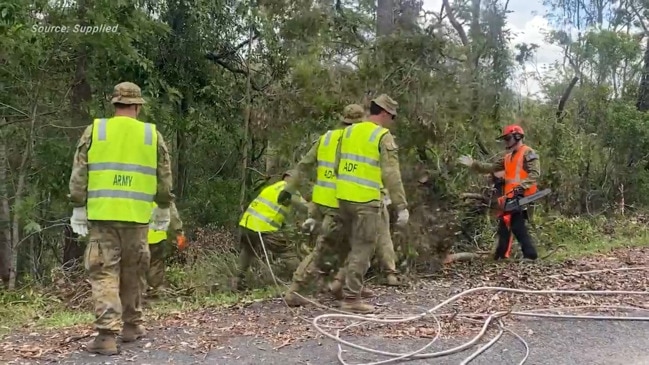
Gold Coast
Don't miss out on the headlines from Gold Coast. Followed categories will be added to My News.
Nine months from a tornado and flooding that devastated large swathes of the Gold Coast as many as one in five homeowners are still battling with insurers over their claims.
Hundreds of homes were damaged by the tornado that ripped through northern suburbs including Upper Coomera, Oxenford and Helensvale on Christmas night, with some completely destroyed.
Further severe damage was caused to homes inundated by intense rainfall days later on New Year’s Day which caused flash flooding in some areas.
According to Insurance Council of Australia data, 101,000 claims worth $1.44 billion were made as a result of storms over the Christmas and New Year period that affected parts of Queensland, New South Wales and Victoria.
As of the end of last month, 81.1 per cent of claims had been closed, leaving about 19,000 outstanding.
Adding insult to injury, some of those still waiting for their claims to be paid out had seen giant increases in premiums.
Theodore MP Mark Boothman said that with another storm season looming it was driving some people who were still waiting on repairs to “breaking point”.
“The last thing these residents need now is having houses which are not ready for the storm season coming,” he said.
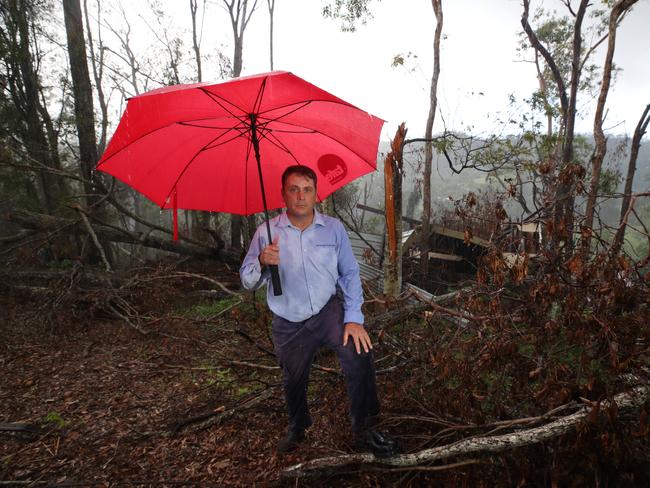
A NINE-MONTH NIGHTMARE
Among those still waiting for their home to be repaired are Aaron Hope and Lee Clogan.
The couple and daughter Janie were visiting family in Europe when the Christmas night tornado punched a hole in the roof of their Oxenford duplex -a hole that meant their home was open to the elements when torrential rain arrived in the following days.
Power and phone outages affecting the area in those difficult days meant neighbours were unable to reach them with the bad news, with the extent of the damage only becoming apparent to them when they returned.
“We arrived back on the sixth of January. We had some idea (of what happened) because we’d seen the news reports while we were in the UK,” Aaron said.
“We had tried to contact our neighbour. Unbeknownst to us power was down, internet was down. There was no contact. So we didn’t hear anything back.
“When we walked in the door it was a nightmare. After a 23-hour flight, the last thing you want to do is a clean-up, mopping, towels, removing damaged stuff.
“Just thinking back to that evening, we were absolutely exhausted and all you want to do is get back in your bed.
“But as you can imagine with all that water, all our bedding, our laundry, everything is damp, seems wet, smells wet.”
It was to be the beginning of months of trouble for the couple.
Via their broker they contacted their insurer, strata specialist Longitude Insurance. A builder specialising in insurance repair soon attended. According to Aaron and Lee, that builder estimated repairs would cost at least $60,000.
In the following weeks multiple tradies attended, attempting to patch the hole in their roof with tarps. The couple say initial efforts failed, with rain continuing to enter and saturate a ceiling that began to sag alarmingly.
“It was going to be potentially collapsing the whole time,” Lee said. “You could hear it, you could see it starting to go. The sag was like really bad, and it was leaking.”
In February a new company was appointed to provide a fresh quote for repairs. Ultimately, their estimator costed repairs at $24,871.74 – a total the couple has disputed since.
“She came out and she said, you can paint over that. Everything that had been wet now could just be painted over,” Lee said.
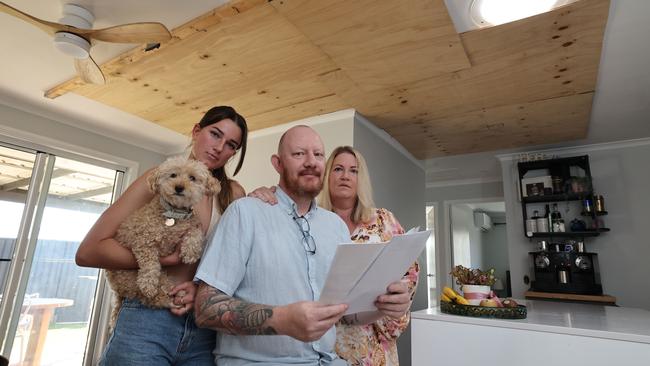
The couple hired an independent expert to assess the damage to their property who came back with radically different findings, estimating repairs would cost $74,695.07.
That consultant also said the family would need to move out and furniture go into storage for the 10 weeks repairs were likely to take, adding another $22,000 to the cost estimate.
A second independent expert quoted $59,581.10.
Yet Longitude have refused to budge on the $24,000 quote, leaving the couple facing a huge deficit.
“Longitude’s initial insurer had quoted upwards of 60, and that was before we lost the ceiling,” Lee said.
“It made no sense it was so low. There is no way it could bring our property back to the way it was pre-tornado.
“We ended up complaining.”
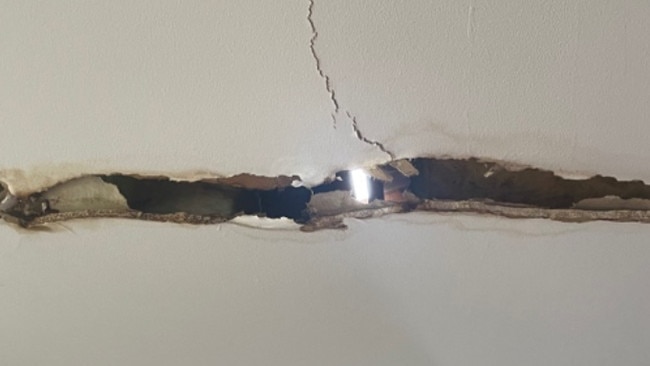
Following the rejection of those complaints the couple is now preparing a case to the Australian Financial Complaints Authority (AFCA).
In the meantime their insurance premium, paid jointly with their neighbour because it is a duplex property, has more than doubled from $2509.19 to $6,150.16. Although this was their first claim in 10 years, an excess of $5000 for claims related to “storm, tempest and rainwater” was also added.
Despite everything, they felt they had no option but to pay.
“As it’s part of a body corp, even though there’s only two of us, we have a legal requirement,” Aaron said. “You can’t just opt out and argue your point, because if we’re not insured our neighbour’s not insured.
“She lives on her own and is approaching retirement. Her premium has gone up even though she’s had no damage.
“Now that’s pretty unfair for a woman approaching retirement.
“Obviously my first instinct when this bill came through was can we find an alternative? But our broker has said, no one’s going to touch you. They’ve got it in writing, no one wants to touch you now. The only quote we’ve got in is Longitude. You’ve only got a month.
“I’d be really reluctant to go for a duplex in Queensland at the moment. Avoid it at all costs.”
The Bulletin put the couple’s claims to Longitude’s management team but did not receive a response.
STILL WAITING TO MOVE BACK
The Worongary home of Rob Wilson and his partner escaped the Christmas Day tornado that ripped through the city further north.
But there was to be no escape on New Year’s Day. Bureau of Meteorology record show that on that fateful Monday, 282mm of rain fell at nearby Hinze Dam.
It caused a flash flood that ripped through their property.
“The driveway was completely demolished. It was a sealed driveway, bitumen, and this water just came up and took half it out,” Rob said. “You could see the floodwater moved a car. I’m surprised it didn’t move the house. It was a torrent of water coming through.”
Also destroyed was a granny flat on the property where their elderly parents lived.
Nine months on, they have still been unable to return.
“The insurance, they’ve had multiple people in, they’ve had a mould expert, they had engineers in back and forth, but they’re not really doing anything,” Rob said.
“The granny flat got flooded through. There was a torrent of water running through it.
“So pretty much the kitchen needs to be replaced, the bathroom needs to be replaced, all the floors really should be replaced. In theory it should be knocked down, given how much damage there was.
“(The insurance) came back saying there is spot repair of the floors and put in new laminate. It was very minimal. Kind of a slap in the face.”
The couple’s insurers also declined their claim for damage to the driveway.
That aspect of their claim has now gone to AFCA for resolution, while the couple remain locked in a lengthy back-and-forth with the company over the scope of works for the granny flat.
“Just this Monday we had another claims guy come out and walk through, and still the scope of work that they’ve proposed is like half of what it should be,” Rob said.
“They’ve given us a scope of work of their proposal to remediate, which isn’t to par, so we’ve rejected that.”
Rob said the saga taken a toll on the elderly couple, who lost most of their possessions in the flood.
“They’re in their seventies. Their lives have been turned upside down,” he said.
“They’ve been in tears. They’ve been destroyed over this.”
WHAT THE INDUSTRY SAYS
A spokesperson from Insurance Council of Australia said the length of time to settle claims varied and depended on the complexity of the situation.
“The time required to settle or resolve a claim depends on the type of claim, the assessment and analysis that’s required to make a claim decision, and the complexity of the repair or settlement. The more complex the claim the longer it will take to process,” the spokesperson said.
“If a customer is unhappy with the handling of their insurance claim, they can lodge a complaint with their insurer and ask the insurer to review its decision.
“If a customer is not satisfied with the outcome of the insurer’s review, the complaint can be escalated to the Australian Financial Complaints Authority (AFCA), which is a free service for insurance customers.”
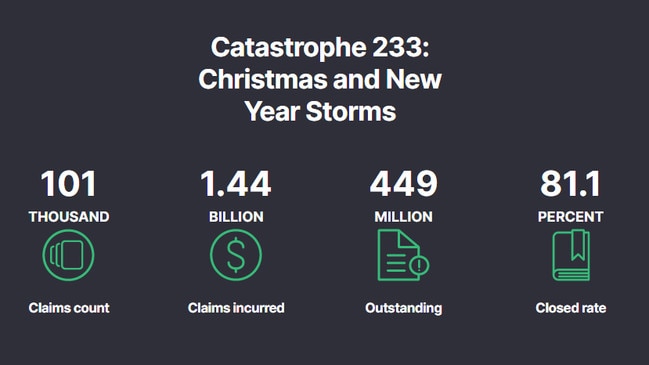
The spokesperson said the cost of natural disasters was “escalating”, causing premiums to rise nationwide.
“Wherever you live in Australia – whether you’re exposed to extreme weather or not – premiums are rising,” they said. “This is because of the escalating costs of natural disasters,
the increasing value of homes and vehicles, making them more expensive to replace, inflation pushing up building and vehicle repair costs, and the increasing cost of doing business for insurers.”
For MP Mark Boothman, who had an up-close view of the damage done while spending long days working with the rural fire brigade in the aftermath of the storms, it’s just not good enough – especially with the next storm season on the horizon.
Addressing parliament, he said there were too many houses across the Gold Coast still awaiting repair, and too many people who still had yet to return.
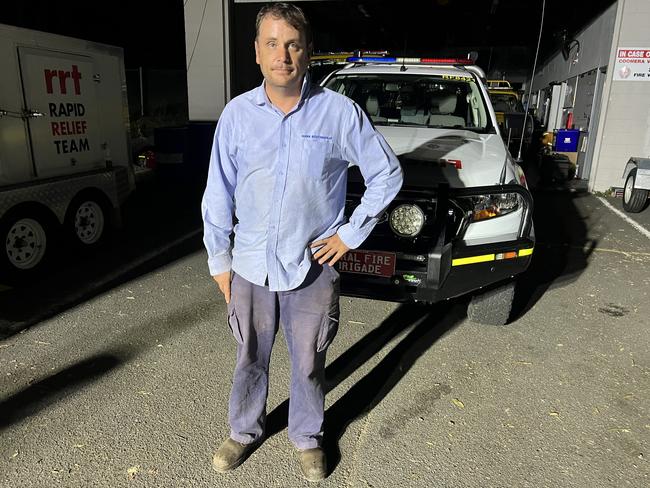
“To this day there are countless houses across the region that still have tarps on their roofs, structural damage, fences down and other damage,” he said.
“Whilst I understand that 100,000 claims is an enormous task, especially when we have a shortage of tradies for the bigger jobs, with the next storm season just around the corner it is cold comfort for all these residents waiting for necessary repairs.
“ ... We have residents who are forced to live with their family and friends because their houses are not fit for habitation. Some are also forced to seek other forms of accommodation like caravans.
“These insurance companies need to finalise their claims faster and prepare these houses for the next storm season.”
Originally published as Christmas storms insurance claims still to be finalised nine months on from horror night




